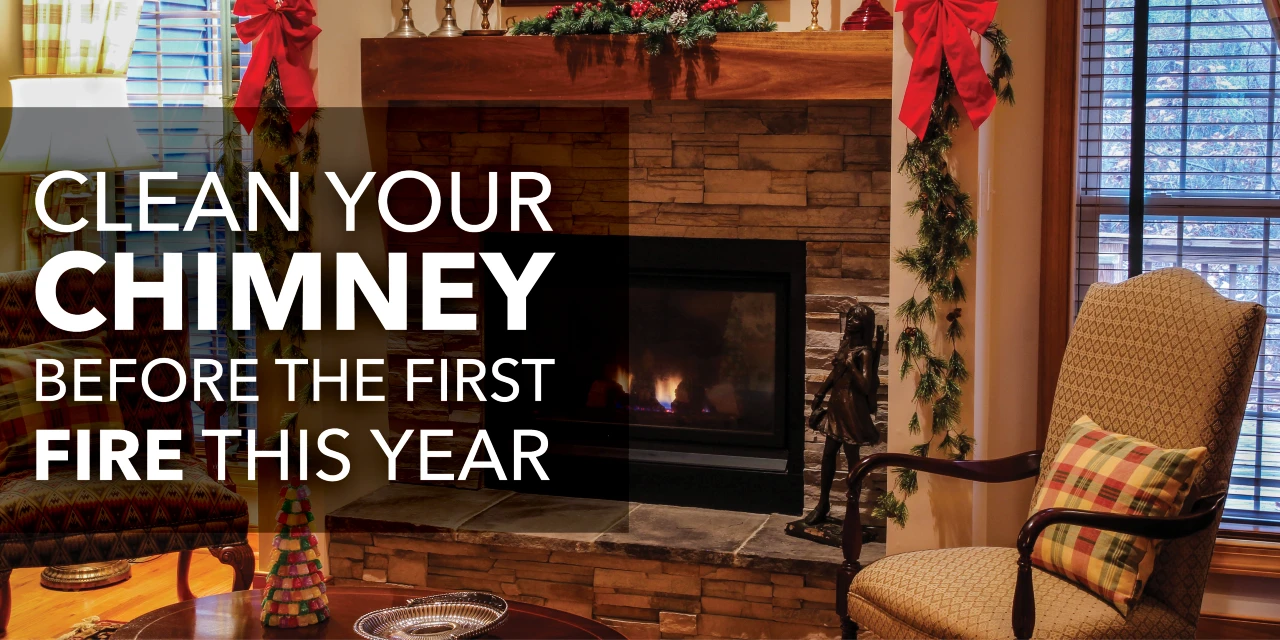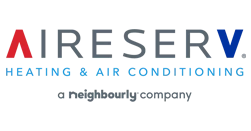Clean Your Chimney Before the First Fire This Year

The weather has changed dramatically since the height of summer a few months ago. Are you eager to warm your toes by the fire? If you have a wood-burning fireplace, you must make certain preparations before lighting the first fire of the year, including having the chimney cleaned.
Why Clean Your Chimney Before the First Fire of the Season?
If you neglected to clean your chimney after the cold season ended last year, you need to have this task performed before your first winter fire. Proper maintenance is critical for avoiding a chimney fire, which could put your home and family at risk. Even if a fire doesn’t break out, a dirty chimney could release toxic fumes into your home, affecting the health of aeveryone inside.
Signs Your Chimney Needs to be Cleaned
There isn’t a reliable rule of thumb telling you how often to have your chimney professionally cleaned. This is because the buildup of creosote—a black, sooty or tar-like substance that condenses and sticks to the inside of the chimney—occurs at different rates depending on the fuel source and oxygen level the fire receives. Therefore, follow these simple steps to determine if your chimney needs to be cleaned this season:
- Put on goggles and a disposable dust mask.
- Shine a bright flashlight up the chimney so you can see what you’re doing.
- Using a fireplace poker, scratch a groove into the black creosote built up inside the chimney above the fireplace damper.
- If the scratch reveals that the creosote is paper-thin, no cleaning is needed. If it’s 1/8-inch thick, call a chimney sweep before the end of the season. If the creosote buildup is 1/4-inch thick, clean the chimney before using the fireplace again to avoid the possibility of a chimney fire.
How to Prepare Your Chimney for the First Winter Fire
For the most thorough chimney cleaning possible, call a professional to perform the job. Find a chimney sweep with certification from the Chimney Safety Institute of America for the best results.
The technician who cleans your chimney should do more than push a brush. He or she should also inspect your chimney for cracks, loose bricks, missing mortar, water damage, and venting problems. Make sure you inform your technician of any odd smells, drafts, or other issues you’ve noticed.
In addition to hiring a professional to clean the chimney before the first fire of the season, follow these steps to prevent chimney fires and other safety concerns this Heating season:
- Check on the glass fireplace door, gasket, and ash dump. If these components don’t work correctly, your fireplace may receive too much oxygen, which could cause the fire to burn dangerously large.
- If your fireplace has a blower, clean it thoroughly to prevent soot and ash buildup.
- Inspect the damper, which is the plate or valve that regulates airflow inside the chimney. Make sure it’s operating properly before you light each fire to ensure fumes vent outside, not back into your home.
- Repair or replace the chimney cap if it’s damaged or missing. This helps keep bird nests, squirrels, leaves, and other objects from falling into the chimney, which could be hazardous.
- Replace the batteries in your smoke alarms and carbon monoxide detectors at the start of the Heating season and test them monthly. These precautions help keep your family informed if a chimney fire ignites.
Everyone loves cuddling up by the warm glow of a real, wood-burning fireplace, and with these preparations, you’ll feel confident when you light the first fire of the season. For more home Heating tips and safety precautions, contact Aire Serv®.
 Click to call
Click to call


